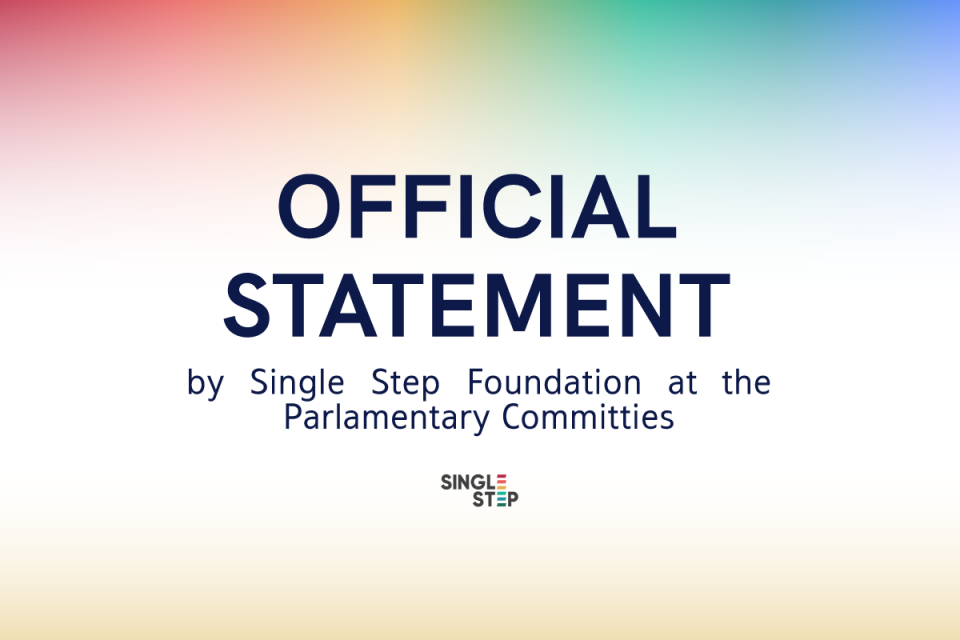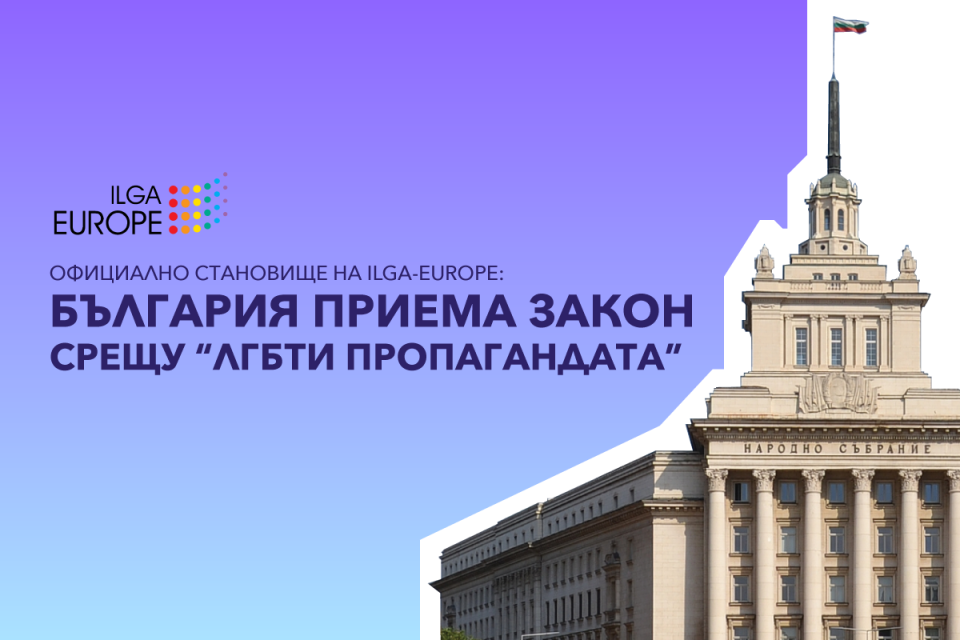
Professional exchange in partnership with ILGA-Europe
02.12.2022
Pernik District Court granted one of the first gender reassignment request in its practice.
19.12.2022
Human Rights building
The ECtHR registered application no. 44683/22, Milev and Others v. Bulgaria, with a complaint for violated right to a peaceful march – Article 11 of the Convention. The applicants are 9 Bulgarian citizens, each of them attended the meeting in front of the Palace of Justice in Burgas on 15 May 2021 celebrating Pride Month. The applicants include the organizer of the meeting, Rusi Milev, the leaders of human rights NGO’s Apostol Stoychev from ASU “Delphi”, Lili Dragoeva from “Bilitis” Foundation, Simeon Vasilev and Dimitar Bogdanov from “Glas” Foundation, as well as other allies of Burgas Pride. The applicants are represented by Natasha Dobreva, attorney, with the support of “Single Step” Foundation.
The applicants submit before the ECtHR that the Bulgarian State had positive obligations under Article 11 of the Convention to criminalize and prosecute a Pride disruption. These positive obligations were not met in the present case. Under Article 11, the applicants first complain about the lack of an adequate legislative framework to combat hate crimes directed against the LGBTI minority. Under the same provision, they additionally complain about the refused criminal proceedings. More specifically, they complain of the refusal of the Burgas District Prosecution Office, confirmed upon appeal with final decree of the Supreme Cassation Prosecution Office, to open criminal proceedings for a publicly-prosecutable crime, namely, the arson of the Pride flag during the meeting. They argue that an administrative penalty in the amount of BGN 100 was not corresponding to the gravity of the offence. The arrogant burning of a big flag – symbol of Pride right next to the Pride participants, by a person who broke the police cordon and stood next to them, became the reason for the dispersal of the demonstrators and for the issued oral order banning the planned march on the streets of Burgas.
The applicants sustain before the ECtHR that the public prosecution was the only option available for protection of their rights and the only one corresponding to the gravity of the offence. They argue that in their case a possible private prosecution into the flag’s destruction, taken as an isolated incident, would not cover the alleged homophobic motives for the arson or the violation of constitutional rights. Likewise, the administrative proceedings against B.R. under the Ministry of Interiors Act did not cover the homophobic motives for the arson, which is a fundamental part of the applicants’ complaint.
In this case, the hate motive was overt from the very outset, ever since the notification of the Burgas Municipality in March 2021 about the planned Burgas Pride and the events that took place between March and May. During this period, the perpetrator committed a series of actions directly opposing the organization and the happening of the Pride by personally targeting the organizer Rusi Milev in connection to his sexual orientation, the burning of the flag being the last one of these actions. The investigation authorities had at their disposal unequivocal evidence that setting the flag on fire had been motivated by Rusi Milev’s sexual orientation and the bias towards the LGBT community in general. The existence of such evidence mandated for an effective application of domestic criminal-law mechanisms capable of elucidating the hate motive, however, no such mechanisms existed in domestic criminal law. The applicants submit before the ECtHR that the domestic criminal legislation does not provide that discrimination on the grounds of sexual orientation and gender identity should be treated as a bias motive and an aggravating circumstance in the commission of any of the offences provided in the Criminal Code. For example, Section 162 of the Criminal Code, which criminalizes incitement to violence or hatred, does not refer to sexual orientation and gender identity as aggravating circumstances.
These defects of the Bulgarian criminal law were already criticized by the ECtHR in the case Stoyanova v. Bulgaria (appl. 56070/18, §§ 73, 74). In implementation of the Stoyanova judgment, on 18 November 2022 the Ministry of Justice published a draft law with amendments in the Criminal Code, which complete the crimes homicide and body injury with the aggravating circumstance “for reasons related to the sexual orientation” . In that respect, the application Milev and Others v. Bulgaria could have been avoided if the Criminal Code criminalized incitement to hatred on the grounds of sexual orientation and if the Burgas District Prosecution Office had investigated such crime.




